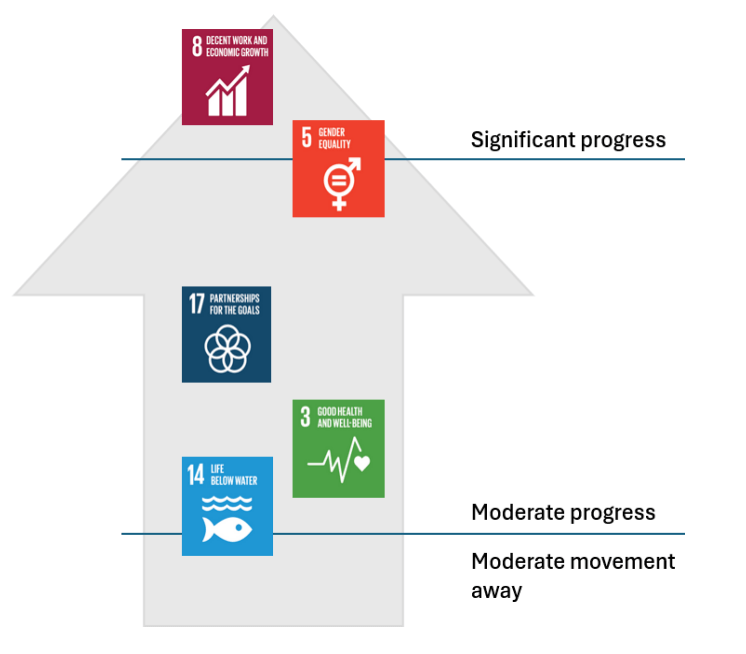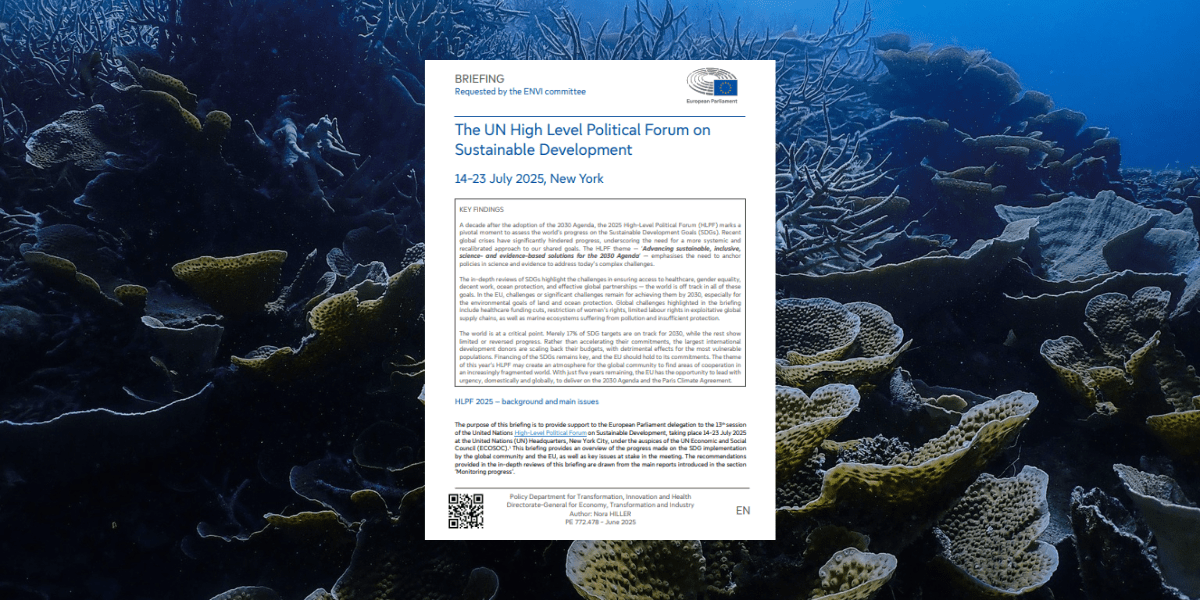Author: Nora Hiller
The global community has five years remaining to achieve the 2030 Agenda for Sustainable Development, a pivotal moment to assess the world’s progress on the Sustainable Development Goals (SDGs). This briefing, commissioned by the ENVI committee of the European Parliament, provides an overview of the challenges and opportunities for a joint approach towards the SDGs, in a time of multiple global crises.
The countries of the United Nations will come together at the UN High Level Political Forum on Sustainable Development (HLPF) from 14-23 July 2025 in New York to review the developments. The forum is the main UN platform on sustainable development and this year focuses on the theme of ‘Advancing sustainable, inclusive, science- and evidence-based solutions for the 2030 Agenda’ – emphasising the need to anchor policies in science and evidence to address today’s complex challenges. The HLPF 2025 is also seen as an opportunity to build on the promises of the 2023 SDG summit and the 2024 Summit of the Future, with the inter-governmentally negotiated Pact for the Future.
Commissioned by the ENVI committee of the European Parliament in preparation for the HLPF, this briefing summarises the EU’s challenges and opportunities at this critical stage of the international community. It aims to inform about the thematic discussions of the forum, monitoring reports, the importance of financing for the SDGs and an overview of the EU’s progress towards the SDGs that will be under in-depth review. At every forum, several SDGs are being assessed in detail, which this year are SDG 3 (Good health and well-being), SDG 5 (Gender equality), SDG 8 (Decent work and economic growth), SDG 14 (Life below water) and SDG 17 (Partnerships).
The EU’s SDG progress in the last years (2019-2024)

Source: Adapted from Eurostat Monitoring Report 2025
The briefing draws from the research from the latest SDG monitoring reports, including the Europe Sustainable Development Report 2025 and the Eurostat Monitoring Report 2025. Similar to previous years, the EU made progress on SDGs related to socio-economic issues, but insufficient steps were put in place to advance on environmental challenges – particularly in the areas of sustainable food and land systems, responsible consumption and supply chains via external negative spillovers. Globally, merely 17% of SDG targets are on track for 2030, while the rest show limited or reversed progress. Together with multiple geopolitical crises, international development finance cuts of 2024/2025 negatively impact the progress of the SDGs. The world faces an SDG financing gap of over US$4 trillion annually in 2023, potentially widening to US$6.4 trillion by 2030.
At the HLPF 2025, the EU will discuss pathways to progress on SDG implementation and financing. Sustained action is required to, among others, ensure global access to vital medicine and vaccines (SDG 3), to enforce protection against domestic violence and attacks on reproductive rights (SDG 5), to ensure decent work through stronger labour protections and supply chain due diligence (SDG 8), and to halt pollution and destruction of marine ecosystems (SDG 14). To meet the goals of the 2030 Agenda and the Paris Agreement, EU Member States and EU institutions should collaborate more with civil society (SDG 17) to ensure the effective implementation for a sustainable future.
This work was commissioned by the ENVI committee of the European Parliament and first published on the website of the European Parliament.
Photo by Kristin Hoel on Unsplash

